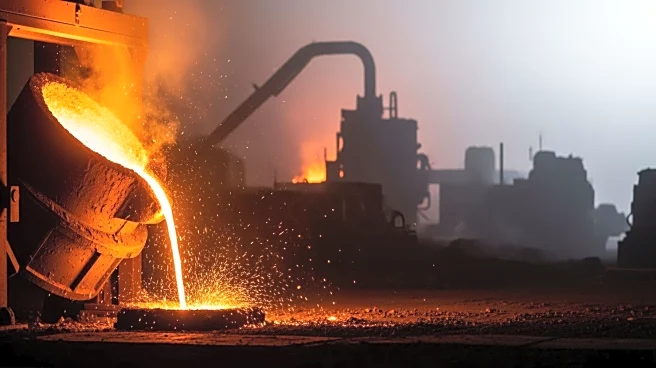What's Happening?
A fire at the Novelis aluminum factory in Oswego, New York, has led to a significant parts shortage affecting major automotive manufacturers, including Stellantis and Ford. The fire has resulted in the idling
of Stellantis' Warren Truck plant for three weeks due to the unavailability of necessary aluminum parts. This disruption follows similar impacts on Ford, highlighting the critical role of the Novelis plant in the supply chain for these companies. The United Auto Workers (UAW) officials have confirmed the shortage, emphasizing the widespread consequences of the fire on production schedules and operations.
Why It's Important?
The fire at the Novelis plant underscores the vulnerability of automotive supply chains to disruptions at key supplier facilities. With Stellantis and Ford both experiencing production halts, the incident highlights the dependency of major automakers on single-source suppliers for essential materials like aluminum. This situation could lead to delays in vehicle deliveries, affecting sales and revenue for these companies. Additionally, the idling of plants may impact workers, leading to temporary layoffs or reduced hours, thereby affecting local economies reliant on automotive manufacturing jobs.
What's Next?
As Stellantis and Ford navigate the parts shortage, they may seek alternative suppliers to mitigate future risks. The companies are likely to reassess their supply chain strategies to prevent similar disruptions. Meanwhile, Novelis will need to address the damage and resume operations to restore supply. Stakeholders, including UAW and local government officials, may engage in discussions to support affected workers and ensure a swift recovery of production capabilities.
Beyond the Headlines
The incident may prompt broader industry discussions on supply chain resilience and the need for diversification of suppliers. Automotive companies might invest in technologies or partnerships to enhance supply chain transparency and flexibility. Additionally, the fire could lead to increased scrutiny on safety protocols and risk management practices at manufacturing facilities.










